The fusion of Artificial Intelligence (AI) and education is shaping the future of learning in unprecedented ways. As we move further into the 21st century, the traditional models of education are being challenged and redefined by AI technologies. AI in Education transformation is not just about replacing textbooks with tablets or classrooms with virtual environments; it’s about creating a more personalized, efficient, and accessible educational experience for learners worldwide.
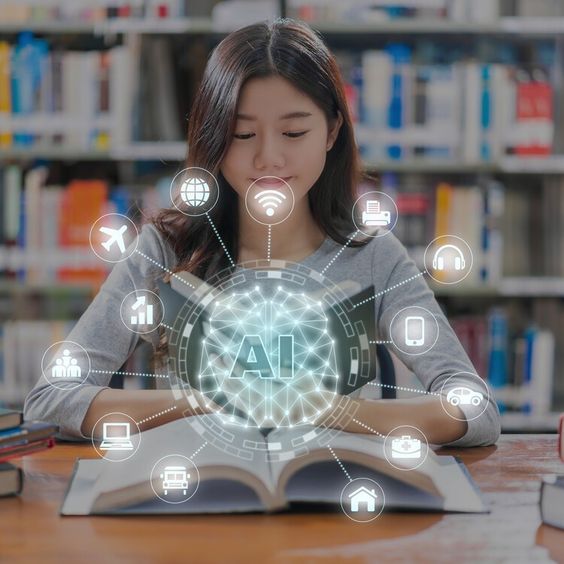
1. The Evolution of AI in Education.
AI in education is not a new concept, but its application has significantly evolved over the past few years. Initially, AI was primarily used for automating administrative tasks like grading or scheduling. Today, AI technologies are deeply integrated into the educational process, from personalized learning experiences to advanced tutoring systems.
1.1 Early Beginnings: Automation and Efficiency
In its early stages, AI’s role in education focused on streamlining administrative processes. Tasks such as grading standardized tests, scheduling classes, and managing student records were automated to reduce the workload of educators and administrators. This allowed them to focus more on teaching and less on bureaucratic tasks.
1.2 The Rise of Personalized Learning
As AI technologies advanced, so did their application in education. One of the most significant developments has been in personalized learning. AI-driven systems can now analyze a student’s learning style, strengths, and weaknesses to tailor educational content to their needs. This approach has shown to improve learning outcomes by providing students with materials that are best suited to their individual learning pace and style.
1.3 AI in Classroom and Beyond.
AI has also started to make its presence felt in the classroom, not just as a tool but as a participant. Intelligent tutoring systems (ITS) can interact with students, providing real-time feedback and assistance, much like a human tutor would. Moreover, AI is being used to create immersive learning experiences through virtual and augmented reality, making education more engaging and interactive.
2. The Benefits of AI in Education.
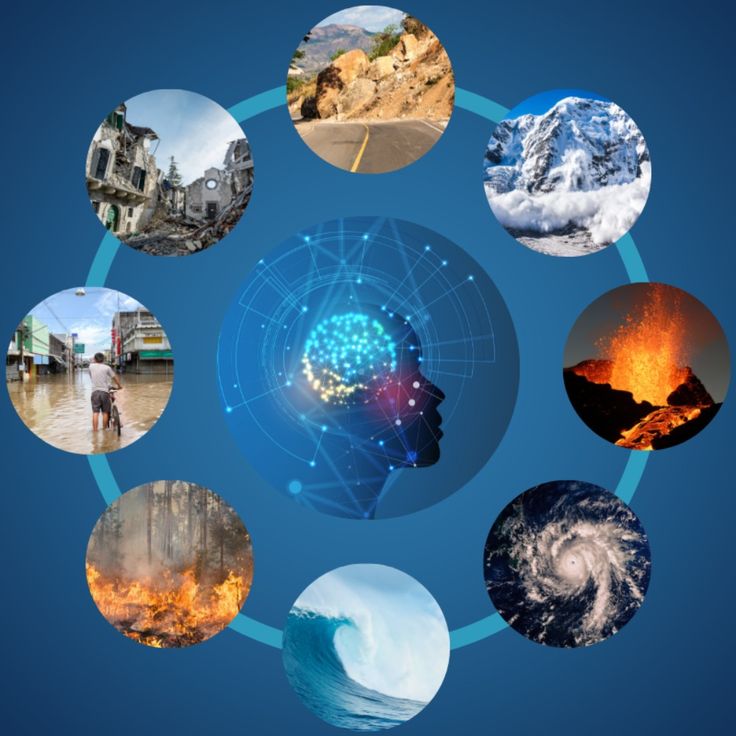
The integration of AI in education offers a multitude of benefits, ranging from enhanced learning experiences to greater accessibility. Here are some of the key advantages:
2.1 Personalized Learning at Scale
One of the most significant benefits of AI in education is the ability to deliver personalized learning experiences at scale. Traditionally, tailoring education to individual students was a time-consuming and resource-intensive process. AI changes this by analyzing vast amounts of data to create customized learning plans for each student, ensuring that they receive the support they need when they need it.
2.2 Improved Accessibility and Inclusion
AI is also playing a crucial role in making education more accessible. AI-powered tools such as speech recognition, text-to-speech, and real-time translation are breaking down barriers for students with disabilities or those who speak different languages. These tools ensure that all students, regardless of their background or abilities, have access to quality education.
2.3 Enhanced Engagement through Interactive Learning
Traditional teaching methods often struggle to keep students engaged, especially in large classrooms. AI technologies, such as gamified learning platforms and interactive simulations, can make learning more engaging and enjoyable. These tools encourage active participation and motivate students to take control of their learning journey.
2.4 Streamlined Administrative Tasks
AI is not just beneficial for students but also for educators and administrators. By automating routine tasks like grading, attendance tracking, and scheduling, AI allows teachers to focus more on teaching and less on administrative duties. This can lead to more effective teaching and better learning outcomes for students.
3. Challenges of AI Education
While the benefits of AI in education are numerous, there are also several challenges that need to be addressed to ensure its successful integration.
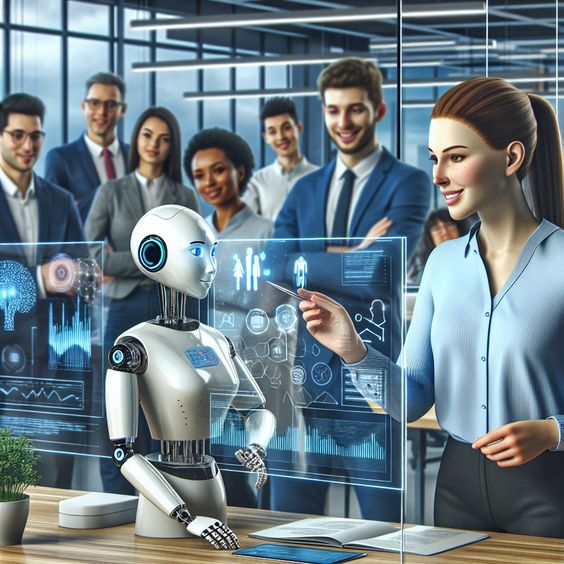
3.1 Data Privacy and Security
One of the most significant concerns with AI in education is data privacy and security. AI systems rely on vast amounts of data to function effectively, raising concerns about how this data is collected, stored, and used. Ensuring that student data is protected and used responsibly is a critical challenge that needs to be addressed.
3.2 Equity and Access
While AI has the potential to make education more accessible, there is also a risk that it could widen the gap between those who have access to advanced technologies and those who do not. Ensuring that all students have equal access to AI-driven educational tools is essential to prevent further inequalities in education.
3.3 Teacher Training and Adaptation
As AI becomes more integrated into education, teachers need to adapt to new technologies and methodologies. This requires ongoing training and professional development to ensure that educators are equipped to use AI tools effectively. However, not all educators may be comfortable with or capable of adapting to these changes, which could create resistance to the adoption of AI in education.
3.4 Ethical Considerations
The use of AI in education also raises ethical concerns. For example, there are questions about the role of AI in decision-making processes, such as admissions or grading, and whether AI can or should replace human judgment. Additionally, there are concerns about the potential for AI to reinforce existing biases or create new ones.
4. The Future of AI Education
The future of AI in education is both exciting and uncertain. As AI technologies continue to evolve, they will likely play an increasingly central role in shaping how education is delivered and experienced. Here are some potential developments we might see in the coming years:
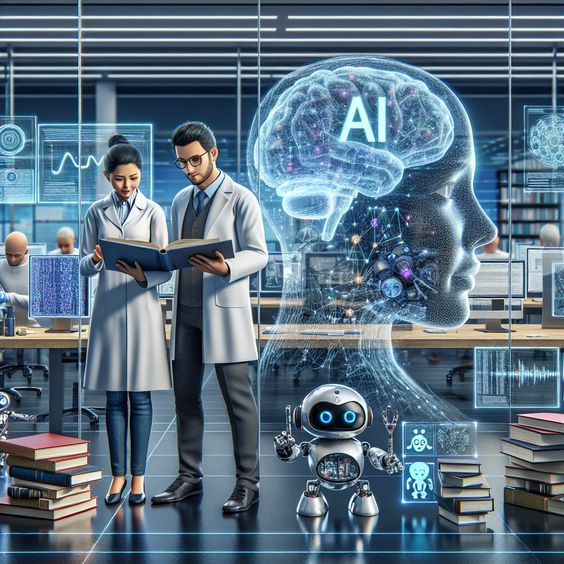
4.1 AI-Powered Lifelong Learning
In the future, AI could play a key role in facilitating lifelong learning. As the pace of technological change accelerates, the need for continuous learning will become increasingly important. AI-driven platforms could help individuals continuously update their skills and knowledge throughout their lives, providing personalized learning experiences tailored to their evolving needs.
4.2 Virtual Classrooms and Remote Learning
The COVID-19 pandemic has accelerated the adoption of virtual classrooms and remote learning. In the future, AI could further enhance these experiences by creating more immersive and interactive virtual environments. AI-powered tutors and learning assistants could provide real-time support to students, making remote learning as effective, if not more so, than traditional in-person education.
4.3 AI-Driven Curriculum Development
AI could also revolutionize curriculum development by analyzing educational trends, student performance data, and job market needs to create dynamic, up-to-date curricula. This could ensure that students are always learning the most relevant skills and knowledge for their future careers.
4.4 The Rise of AI Ethics in Education
As AI becomes more integrated into education, the need for ethical guidelines and standards will become increasingly important. We may see the development of AI ethics committees within educational institutions, tasked with ensuring that AI is used responsibly and in a way that benefits all students.
5. How to Prepare for AI in Education
As AI continues to transform education, it’s essential for educators, students, and institutions to prepare for these changes. Here are some steps that can be taken to ensure a smooth transition:
5.1 Embrace Continuous Learning
Educators should embrace continuous learning to stay updated on the latest AI technologies and how they can be applied in the classroom. This could involve attending workshops, enrolling in online courses, or participating in professional development programs focused on AI in education.
5.2 Foster Digital Literacy
For students, developing digital literacy skills will be crucial in an AI-driven educational landscape. Schools should focus on teaching students how to use AI tools effectively and responsibly, as well as how to critically evaluate the information they receive from AI-driven systems.
5.3 Collaborate with AI Experts
Educational institutions should consider collaborating with AI experts and technology companies to develop and implement AI-driven solutions. This could involve partnering with AI researchers to create personalized learning platforms or working with technology companies to develop AI-powered tools for the classroom.
5.4 Prioritize Ethical AI Use
Finally, it’s essential to prioritize the ethical use of AI in education. This means developing clear guidelines and standards for how AI should be used, ensuring that student data is protected, and being mindful of the potential biases that AI systems can introduce.
Conclusion
The integration of AI into education is not just a trend; it’s a fundamental shift that will shape the future of learning. While there are challenges to overcome, the potential benefits of AI in education are immense. By embracing AI, we can create a more personalized, efficient, and accessible educational experience for all students. As we move forward, it’s essential to ensure that these technologies are used responsibly and ethically, so that they benefit everyone in the educational ecosystem.
FAQ: AI in Education
As AI continues to reshape the educational landscape, many people have questions about how it works, its benefits, and the challenges it brings. Here is a list of frequently asked questions about AI in education, along with concise and informative answers.
1. What is AI in education?
AI in education refers to the use of artificial intelligence technologies to enhance and transform the teaching and learning process. This includes applications such as personalized learning platforms, intelligent tutoring systems, automated grading, and more.
2. How does AI personalize learning?
AI personalizes learning by analyzing data about a student’s learning style, strengths, weaknesses, and progress. It then tailors educational content and experiences to meet the individual needs of each student, helping them learn at their own pace and in a way that suits them best.
3. What are the benefits of AI in education?
AI offers several benefits in education, including personalized learning, improved accessibility, enhanced student engagement, streamlined administrative tasks, and more efficient teaching methods. It can also provide real-time feedback to students and assist teachers in identifying learning gaps.
4. What are the challenges of integrating AI into education?
The main challenges include data privacy and security, ensuring equitable access to AI technologies, training teachers to use AI tools effectively, and addressing ethical concerns related to AI decision-making and bias.
5. Can AI replace teachers?
AI is not intended to replace teachers but to support them. AI can handle repetitive tasks, provide personalized learning experiences, and offer additional resources, but human teachers are still essential for providing emotional support, fostering critical thinking, and guiding students through complex concepts.
6. How does AI help students with disabilities?
AI can assist students with disabilities by offering tools such as speech recognition, text-to-speech, and real-time translation. These technologies make learning more accessible and inclusive, allowing students with different abilities to participate fully in the educational experience.
7. Is AI in education expensive?
The cost of implementing AI in education can vary widely depending on the technology and scale of deployment. While some AI tools can be expensive, others are more affordable and scalable. In the long term, AI can lead to cost savings by automating administrative tasks and improving learning efficiency.
8. How can educators prepare for AI in education?
Educators can prepare for AI in education by embracing continuous learning, developing digital literacy skills, collaborating with AI experts, and prioritizing ethical AI use. Professional development and training are also essential for effectively integrating AI into the classroom.
9. What ethical concerns are associated with AI in education?
Ethical concerns include data privacy, the potential for AI to reinforce or introduce biases, the role of AI in decision-making processes (such as grading and admissions), and the impact of AI on teacher-student relationships.
10. How will AI shape the future of education?
AI will likely play an increasingly central role in education, facilitating personalized learning, creating more immersive virtual classrooms, driving curriculum development, and supporting lifelong learning. However, its impact will depend on how educators, institutions, and policymakers address the challenges and ethical considerations associated with AI.
11. Can AI help with remote learning?
Yes, AI can significantly enhance remote learning by providing personalized instruction, real-time feedback, and virtual tutoring. AI-driven platforms can create interactive and engaging remote learning experiences, making education more accessible to students regardless of their location.
12. What role does AI play in curriculum development?
AI can assist in curriculum development by analyzing educational trends, student performance data, and job market demands. This allows for the creation of dynamic and up-to-date curricula that prepare students for future careers.
13. How does AI improve student engagement?
AI improves student engagement by making learning more interactive and personalized. Gamified learning platforms, interactive simulations, and AI-driven tutoring systems can make education more enjoyable and motivating for students.
14. Is AI in education safe?
AI in education is generally safe when used responsibly. However, it is crucial to address data privacy and security concerns to protect student information. Institutions must also ensure that AI systems are transparent and that their use is guided by ethical standards.
15. How does AI impact the role of educators?
AI can change the role of educators by allowing them to focus more on teaching and less on administrative tasks. It can also provide teachers with insights into student performance, enabling them to offer more targeted support. However, educators must adapt to new technologies and methodologies to fully leverage AI’s potential.
16. What are some examples of AI tools used in education?
Examples of AI tools in education include intelligent tutoring systems (ITS), personalized learning platforms like Knewton, AI-driven assessment tools like Gradescope, and AI-powered chatbots that assist with administrative tasks.
17. How does AI handle grading and assessments?
AI can automate grading and assessments by analyzing student responses, identifying patterns, and providing feedback. While AI is effective for grading standardized tests and objective questions, human oversight is still necessary for more subjective assessments like essays.
18. How does AI support lifelong learning?
AI supports lifelong learning by providing personalized learning experiences that adapt to the evolving needs of individuals. AI-driven platforms can help people continuously update their skills and knowledge, ensuring they remain competitive in a rapidly changing job market.
19. What is the role of policymakers in AI in education?
Policymakers play a crucial role in ensuring the responsible use of AI in education. They must establish regulations and guidelines to protect student data, promote equitable access to AI technologies, and address ethical concerns. Policymakers should also support research and development in AI to ensure its positive impact on education.
20. How can students benefit from AI in their education?
Students can benefit from AI by receiving personalized learning experiences, gaining access to advanced educational tools, and enjoying more engaging and interactive learning environments. AI can also provide students with additional support, such as virtual tutoring and real-time feedback, helping them achieve better learning outcomes.

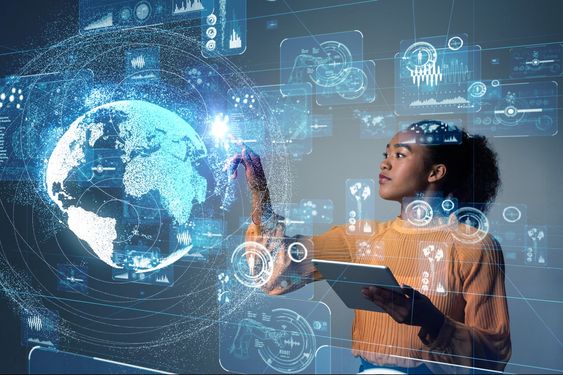
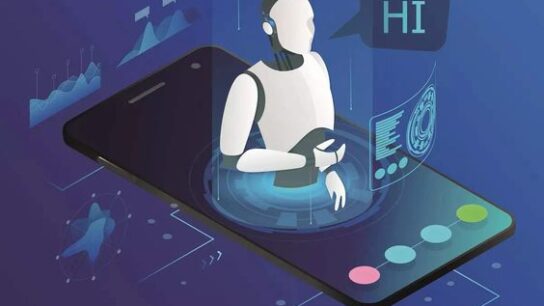

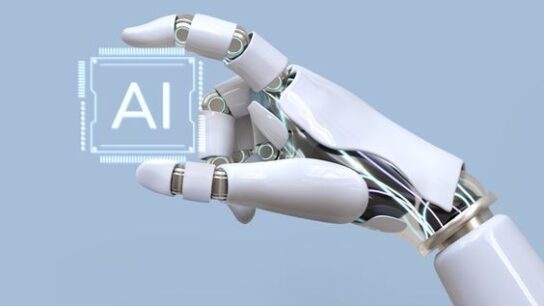
[…] More Ai Information Click Here […]
[…] For More Ai information Click Here […]